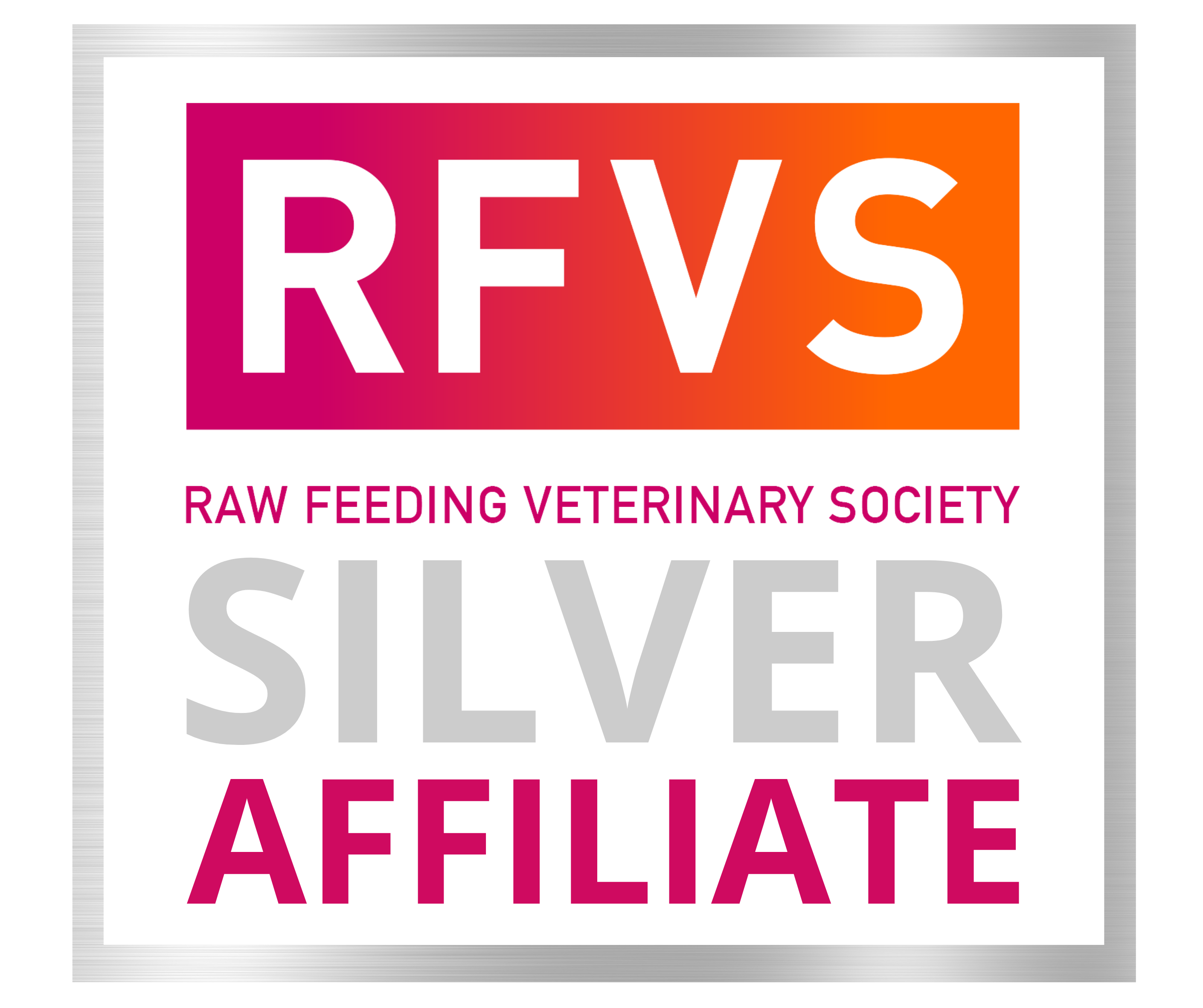The Safety of Raw Feeding
A 2011 report in the Journal of the American Veterinary Medical Association1 describes how Salmonella is spread, gives the history of outbreaks associated with pet food, and offers tips for minimising risk of infection for pets and families. The stated intent of the report is summarised as follows:
There have been several, recent recalls of commercial pet foods in the US. because of Salmonella contamination. Contamination creates a risk that pets can become carriers of Salmonella, or clinically ill, as can pet owners handling the food.
The first tip offered by the report is: Do not feed a raw diet to your pet. This is despite the fact that the recalls mentioned have been related to commercial processed foods and biscuits. The American Veterinary Medical Association (AVMA) released a position statement on the safety of raw feeding in 2012.
Salmonella infection is a common concern among pet owners who are thinking of switching to a raw diet. And there is a risk of infection from raw food, just as there is a risk from processed food, and food in the human food chain. The veterinary profession has an opportunity to support pet owners by spreading helpful information about reducing the risks from all food sources.
HOW COMMON IS SALMONELLA INFECTION?
Many dogs and cats naturally carry Salmonella (mostly Salmonella typhimurium) in their digestive tracts. The report states that studies have found a 1-15% prevalence of Salmonella in the faeces of healthy dogs, and 1-18% in healthy cats.
According to the report, Salmonella is the most common food-borne bacteria. Around 1.4 million people in the U.S. contract Salmonella infections each year. About 1,000 of these die. About half of all Salmonella infections are from restaurants; and are often traced to infected, but asymptomatic, food handlers. Many of us have Salmonella infections and feel no ill effects. Meat, poultry, eggs, milk, fruits and vegetables can be contaminated with Salmonella. Processed foods can be easily infected in a contaminated plant. Recent food recalls for Salmonella have involved nuts, chocolate bars, peppers, and peanut butter.
Salmonella infection does not always cause ill-health. Many carrier's of salmonella show no symptoms of disease.
WHAT IS THE RISK TO HUMANS FROM PET FOOD?
In America in 2006, 79 people are reported to have contracted Salmonella from handling commercial pet food. Mars Petcare recalled over 20,000 tons of contaminated dry dog and cat food crossing 105 different brands. Recent Salmonella contaminations have also resulted in the recall of a range of dog treats. These recalls were all in processed foods, not raw (although with the growing popularity of raw, we can expect to start seeing recalls for raw food too).
WILL YOUR PET GET SICK FROM SALMONELLA INFECTION?
Healthy animals can deal with large amounts of bacteria – the types they would encounter eating wild prey. Stomach acid, bile, and gut microbes control pathogenic (disease-causing) bacteria. A raw-fed carnivore’s stomach is highly acidic - there aren't many organisms that can survive it. Dogs and cats produce lots of bile, which is both anti-parasitic and anti-pathogenic. Whether or not a pet develops disease from Salmonella depends on various factors:
"Factors that increase the likelihood of clinical disease from Salmonella include the age of the animal, poor nutrition, the presence of cancer or neoplasia, and other concurrent diseases and stress, as well as the administration of antibiotics, chemotherapy or glucocorticoids." (Rhea V. Morgan, DVM)
FOOD SAFETY TIPS
- Raw Essentials products are frozen for at least 10 days before they are sold. If you buy fresh meat from the butcher, freeze it for at least 3 days before feeding to your pet.
- Defrost in a sealed container in the fridge overnight, or in a bag submerged in warm water (not in the microwave). Check the bag is intact before submerging so that you don't lose any precious juice!
- Defrost your pet's food each day. You may use food that has been in the fridge for up to 3 days - however fresh is best!
- Feed all juices to your pet - they contain great nutrients.
- Clean surfaces, equipment and your hands after feeding. Use anti-bacterial cleaners. Do not allow pets on countertops.
- Immunocompromised people should use utensils or disposable gloves. Where possible, the role of feeding pets should be given to a non-immunocompromised member of the household.
- Discard any uneaten raw food that you pet leaves after the meal (there is usually nothing left to discard - if there is, you may be feeding too much).
- Love your pets, but please don't kiss them! This may lead to illness.
- Wash your hands with anti-bacterial soap between playing with your pet and eating.
- Keep your pets digestive system and gut flora in optimal condition. This will help to protect them from ill-health in general, as well as from disease caused by pathogens. Please chat to us if there are any signs of digestive issues.
- Minimise stress on the digestive system: avoid mixed-feeding (exclude all grains and starches).
- Wear gloves when emptying litter trays daily and disposing of pets’ stools.
- Extra vigilance is required for individuals who are pregnant or immunocompromised, or if there are babies or small children in the home. Discuss this with your health professional if applies to you.
IN CONCLUSION
The risk of disease caused by Salmonella can be controlled by having a health dog or cat on a carefully planned and well sourced, species-appropriate raw food diet, combined with sensible meat hygiene practises in the home.
If these points are adhered to, then humans are at significantly greater risk of a problem if they eat in restaurants.
REFERENCES
1 Update on Salmonella spp contamination of pet food, treats, and nutritional products and safe feeding recommendations. Journal of the American Veterinary Medical Association, June 1, 2011; Vol. 238; No.11; 1430-1434
